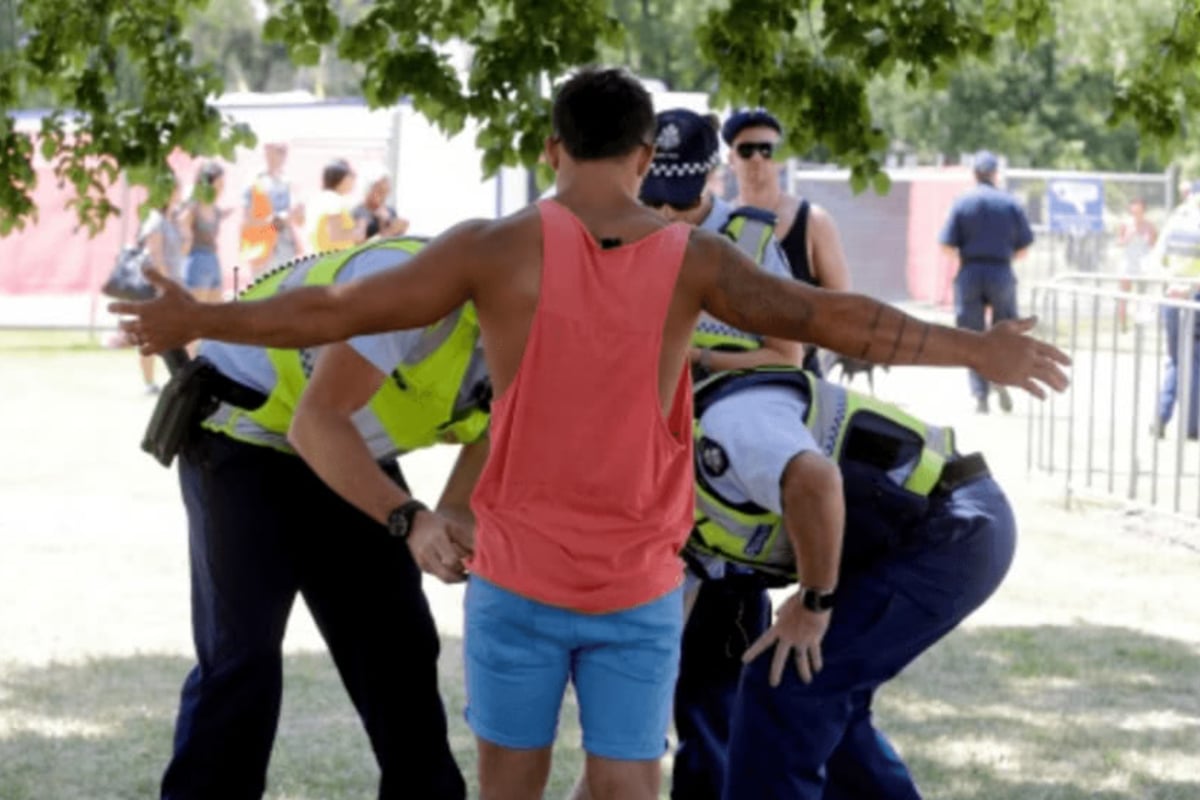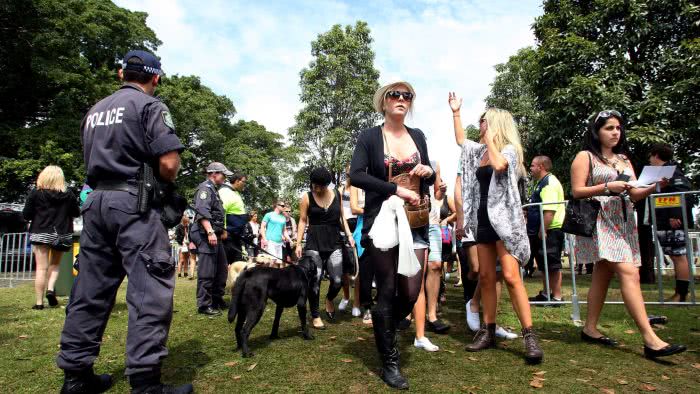NSW police are failing to follow current strip search legislation

Amidst the investigation of NSW Police into the strip search of a 16-year-old female at last year’s Splendour in the Grass, a roundtable discussion was held at DLA Piper in Sydney today.
Representatives from Redfern Legal Centre, Police Accountability, UNSW Faculty of Law, music industry, women’s right and health came together to discuss strip search law in NSW, and more crucially, why strip search law needs to change and what needs to be done to change it.
Samantha Lee, Solicitor, and Head of Police Accountability at Redfern Legal Centre lead the roundtable.
She detailed the Safe + Sound campaign, which launched in November 2018 to look into legislation around strip searches, and stressed the issue of strip searches now being used as routine checks, not in exceptional circumstances as current legislation states.

Samantha Lee, Solicitor, and Head of Police Accountability at Redfern Legal Centre
Lee said she personally noticed a marked increase of people coming forward on the issue at Redfern Legal Centre, and with the recent ‘Rethinking Strip Searches by NSW Police’ report, people are becoming more aware of the harmful, humiliating and traumatic aspects to being searched.
As previously reported by TIO, the new report revealed police strip searches in New South Wales have increased almost twentyfold in 12 years.
The last four years alone has seen a 46% jump in strip searches; 300 children (10-17-years-olds) have been strip searched in the last two years; and in 2018-2019, 66% of searches found nothing on the person being searched.
One of the more shocking facts to come out of the roundtable today was that in September 2019 (a month ago) police were finally given a manual on how to conduct a strip search. Before then there was no official stand-alone guide.
The new manual guides police to conduct cavity searches by allowing the direction to squat, cough and part buttocks, despite legislation stating you can not conduct cavity searches, as a strip search is a visual inspection only.
This has seen police regularly ask people – and in the case of the 16-year-old female at Splendour – to squat down for inspection. It also sees them ask people to cough while squatted, part their buttocks, and to use force for people who resist.
“We are of the belief that the only way we are going to have significant change is if there is legislative change,” said Samantha Lee of Redfern Legal Centre.
The damning issues with Section 31 of the law enforcement (powers and responsibilities) act
The current legislation around strip searches does not define what a strip search is, it says it must be “serious and urgent” enough to conduct a strip search, but what that is, is not clear.
Dr Michael Grewcock, of UNSW Faculty of Law co-authored the ‘Rethinking Strip Searches by NSW Police’ report with Dr Vicki Sentas.
At the Roundtable today Grewcock said that when the concern of strip searches (largely around the Kings Cross area at the time) was debated in state parliament in the late 1990’s, there were concerns about the ‘serious and urgent’ test.
The clause was brought into legislation for strip searches upon warranted suspicion about weapon possession and drug supply.
However, due to the increased use of dogs, the focus is now more on drug possession than drug supply, with strip searches becoming the default for possession. This sees current police ignoring the ‘serious and urgent’ test.
“You cannot look at the data without being able to infer that this is clearly about possession,” said Dr Michael Grewcock.

NSW Police at a festival
In addition to the rules around ‘visible inspections only’ being ignored, and the increase of ‘squat and cough’ procedures being carried out on site in flimsy tents at festivals, Dr Grewcock would like to see a clearer definition of what is reasonable grounds for a strip search.
Currently, a child as young as 10 can be legally strip searched but there are some safeguards in place. These include the fact that children can only be strip searched in the presence of a parent or guardian, or another person whose presence is acceptable to that person.
The child cannot waive this right, however section 33(3A) says police can override the need to have a parent or support person present, but they must record the justification.
In the case of the 16-year-old female, the officer conducting the strip search did not ask her age or offer her a guardian to be present.
More than that, the legislation does not define what is a private area for the strip search. In a statement to the commission, the 16-year-old said she was led to a small tent where the door flap did not close properly and she was moved to the corner to strip naked. No drugs were found.
The strip search law reform recommendations include:
- Making the definition of a strip search clearer. It currently does not include the pulling out of clothing to look down a person’s pants, which has been done in public view. It should exclude cavity searches, which should be forensic procedures.
- Strip searches must be a last resort.
- The limiting of strip searches for suspicion of weapons and actual drug supply, not potential possession or potential deemed supply.
- Must be conducted after reasonable suspicion AND in serious and urgent circumstances with an emphasis on serious risk to personal safety.
- No strip searches of children (under the age of 17) without a court order.
- Transparency and accountability for NSW Police. There should be mandatory recordings of sessions, bi-annual reviews by LECC (Law Enforcement Conduct Commission), and the annual publication of data by BOCSAR (Bureau of Crime Statistics).
“We think that is fairly modest, they’re not radical proposals,” said Dr Vicki Sentas at the Roundtable. “[…] All of these recommendations are technical and legal but they’re all pointing toward making strip searches a last resort.”

Dr Vicki Sentas
Dr Vicki Sentas said she and Dr Michael Grewcock met with the Minister for Police David Elliott before releasing the report and that he was supportive.
Samantha Lee said she has met with multiple politicians and has had a positive response from those from Labor, Greens and Liberals.
“I think there are people within the Liberal Party who are concerned and their voices would be an important contribution to this issue,” Lee said.
Tone Deaf has put together a ‘know your rights’ article for festival attendees based on information which was shared at the strip search roundtable today.
This article originally appeared on The Industry Observer, which is now part of The Music Network.






























